The rank of general is short for Captain-General, which means an office head (Captain) of the army generally (General).
Emperor is an English word derived from ‘imperator’, the supreme Roman military leaders. Commander meant the commander in chief. Back in those times, the Senate vested this rank onto a Consul or a Praetor, to confer the official commanding supreme power in the battlefield.
In the years that followed, Rome witnessed a series of generals, fascinated by bloodshed, sweat and triumphant glory in the arena. In this article, we are looking at some of the most famous Roman generals of history:
10. Marcus Vipsanius Agrippa (63-12 BC)
Content
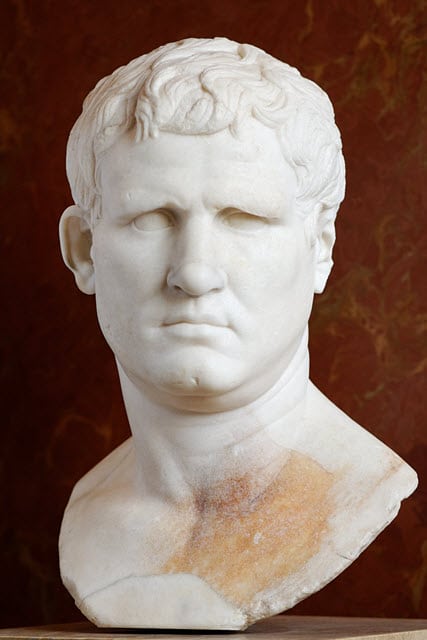
Source: Wikimedia Common
Marcus Vipsanius Agrippa was one of the most influential consuls and generals of the Roman Empire. He was a good friend of Augustus, the son of Julius Caesar.
Augustus, the first Roman Emperor, was mostly assisted by Agrippa. As for himself, he became the consul at a tender age of thirty when the appropriate age for holding the office was forty-three.
Agrippa ruled articulately inland as well as in the sea. He proved his versatility the same year he became a consul. One of Caesar’s rivals, Pompey, had a son, Sextus Pompeius. He found an opportune moment to capture Sicily during an ongoing fiasco among the Second Triumvirates (Antony, Octavian, and Lepidus).
He turned the island of Sicily into a pirate’s den, while the channel of food supply to Rome was in jeopardy. A fleet, under the command of Agrippa, was launched against Sextus Pompeius in 36 BC and defeated him and his ill-intentions.
Similarly, he was an artist of refined taste. Undertaking construction of monuments in Rome in alignment with Augustus’ policies, he mostly devised bathhouses (Thermae Agrippa), reconstructed sewers, and paved the streets.
9. Aurelian (214-275 AD)
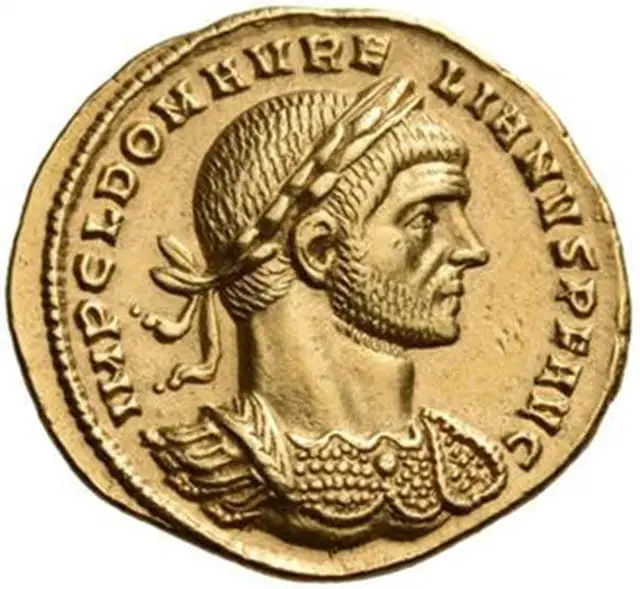
Source: Wikimedia Common
Aurelian was a top-notch Roman Emperor and one of the most underrated one at that, who was a staggering victor during the first three years of his tenure.
During his ascension to the throne, he had within his empire a withering army, worn off by previous wars, empty coffers and difficult political situation. Yet, he took to tend and cared for both the legions and the collapsing empire and restored it to make it robust in a span of a few years.
He had many accomplishments under his hat: he battled against the Alamanni tribe, the Juthungi horde, and the Marcomanni horde in 271 CE. In the same year, he defeated the Vandals. He also defeated Tetricus I and toppled the Gallic Empire.
In 272 CE, a war broke out between Aurelian of Rome and Zenobia of Palmyra. Further, by winning over Zenobia again in the Battle of Emesa, he merged the Palmyrene empire with Rome. In 274 CE, he also annexed the Gallic empire.
He was a potent ruler and a strict disciplinarian who was assassinated soon by his envious enemies.
8. Nero Claudius Drusus (38-9 BC)
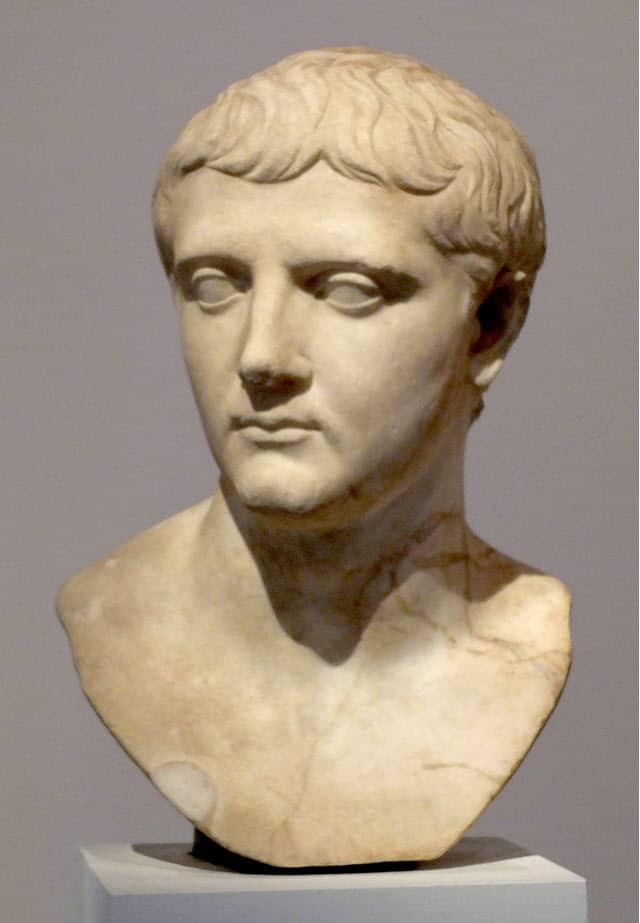
Source: Wikimedia Common
Nero Claudius Drusus Germanicus or Drusus, the Elder, was a notable general in early Rome. He first commanded a military at the age of 23 and built over 50 forts along the Rhine river. His campaigns in Germania reached Roman troops places they had never seen before. The Romans dedicated statues to him as he resembled Alexander the Great.
In the 16 BC, he and his reinforcements sent by his brother, Tiberius repelled and defeated the Alpine Tribes. In 13 BC, plans were immediately drawn for the invasion in Germania, hoping to extend the Roman territory to the Elbe River. Before this could begin, the newly acquired province of Gaul needed stability. For the next two years, Drusus tackled many problems there, crunching the poor infrastructure and issuing a proper taxing structure. He also left his stamp on the province as Drusus’s Foot.
As previously stated, the Elbe River was a target to establish as a new frontier, which meant taking the Roman army through hundreds of miles of hostile territory. He set over 50 military bases, bridges and fleets to protect and patrol them. He built six legendary fortresses along the middle Rhine.
Drusus needed allies; he befriended Batavia. A canal was created as a passage for their fleets to reach the destined areas, all introduced by Batavia. The new route saved the Roman fleet from making a dangerous detour to the North Sea. With this, he plans a direct assault into the Germanic lands.
He ordered the fleet, carrying as much as four legions, to sail down the Rhine into the ocean. He subjugated a few tribes along and consolidated his army. He attacked the Germanic lands, continuing his march deep in Germania along with his allies. He garrisoned several troops there to prove his incontestability.
7. Gaius Marius (157-86 BC)
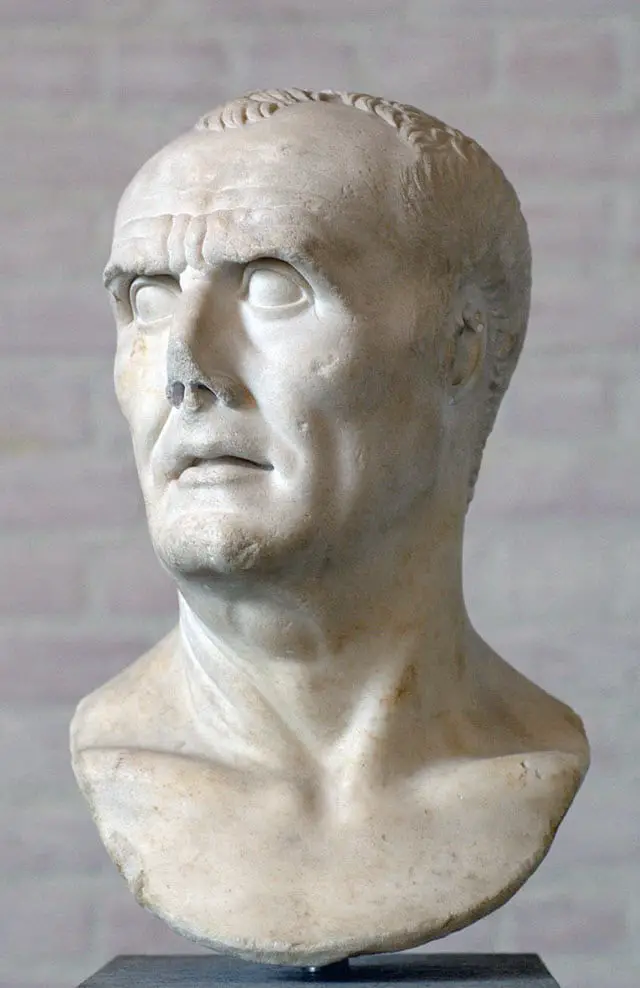
Source: Wikimedia Common
Marius was born a plebeian in 157 BC. His early military career is regular and unremarkable. He was a military tribune, later in 123 BC, he was a quaestor. However, his first military endeavour was under the eminent Scipio Africanus, in which he fought from 134 to 133 BCE.
Ten years after a military tribune, he served to battle against the pirates. As a Quaestor in 123 BC, he triumphed in the plebian elections. In 116 BCE, Marius applied for the position of praetor and was victorious. He was chosen as Leggett and to pacify Italian and equestrian interests.
Soon after, Marius was appointed as a consul in 107 BCE, displaced Metellus from Numidian command, and became their commander. He recruited the army from the poor slaves, defying the policies of both Rome and the Numidian army. This strategic play helped him to conquer the Jugurthine War. Similarly, the Cimbri tribe massacred, as he killed as many as 360,000 tribesmen and enslaved 150,000 more, bringing an end to the Cimbric War.
Not only a triumphant general, but he was also a one of a kind reformer. During his reign, he instituted the stapling procedure of recruiting slaves into the army. Also, he initiated adorning the soldiers with a silver eagle badge that later became a permanent gesture in Rome, all thanks to Marius.
6. Germanicus (15 BC-19 AD)
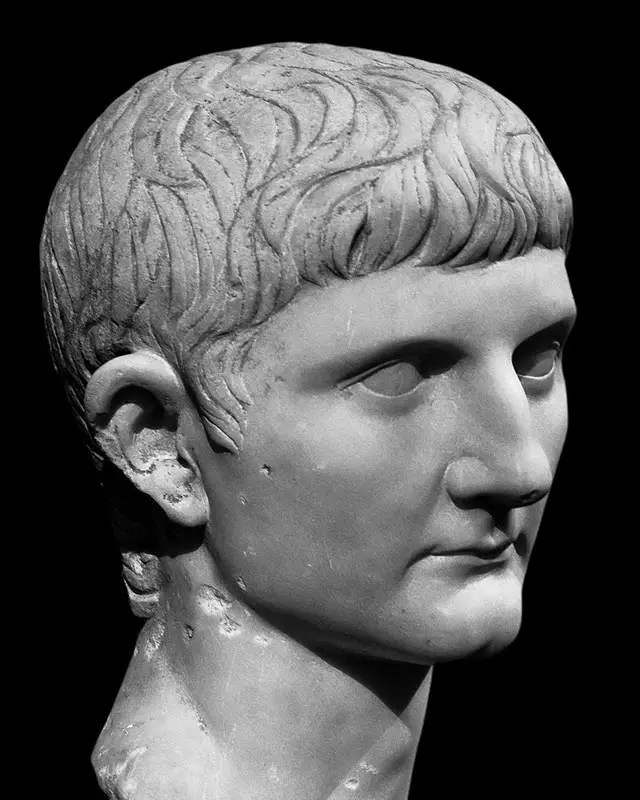
Source: Wikimedia common
Germanicus Julius Caesar was a vital figure amongst the generals of Rome. Related to the reputed Julian-Claudian family, he acquired the agnomen of Germanicus in place of his father’s attempts to defeat Germania.
He ran his campaigns against Germania to avenge the lost eagles at the Battle of Teutoburg Forest. He was made the commander of Germania forces and subsequently retrieved the lost Eagles of his legions after decimating Marci, the German tribes in Ruhr river. He successfully raided and defeated the Bructeri tribe and revived the Eagle of the nineteenth Legion. His main attack was on Thusnelda whom he let to rest in his quarters by fully respecting her.
In 16 AD, he raised a large number of army and led them to Germany, where they devastated any active resistance. There were many engagements and defeats along his way, altogether known as the Battle of the Weser River. They inflicted heavy casualties upon the Germans while sustaining very little or no death tolls. It proved his superiority in conducting military activities.
Similarly, in 18 AD, he annexed the territories of Cappadocia and Commagene into Rome. It was a significant win in Asia by Germanicus before his death under uncertain circumstances. Yet, adorned with many titles posthumously.
5. Marcus Antonius (83-30 BC)
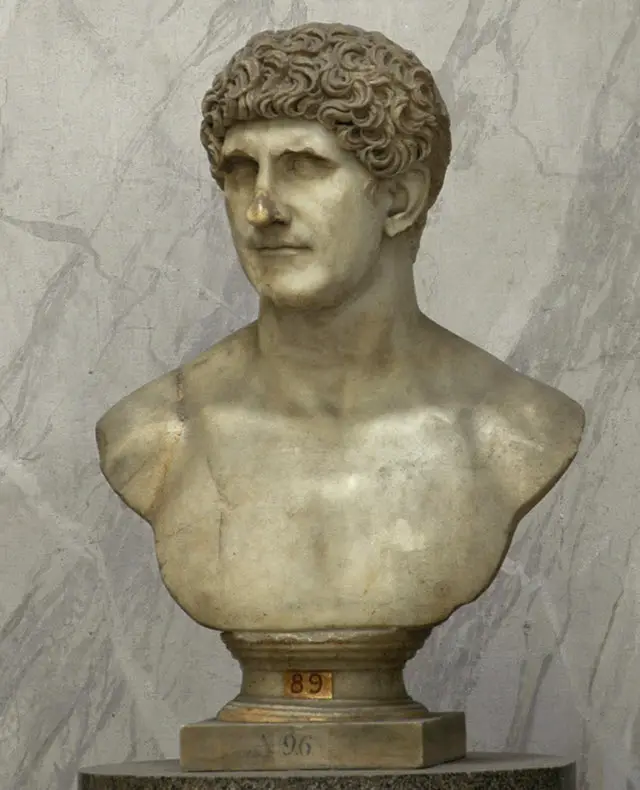
Source: Wikimedia Common
Marcus Antonius or Marc Antony was an ardent follower and supporter of Julius Caesar. He was somehow related to Caesar even, through his mother. While he didn’t earn much fame or power politically, it was his military endeavors that shot him to fame.
Joining the cavalry of Aulus Gabinius, he campaigned against Syria and neighbouring territories. Throughout the campaign, he showed positive aptitude with regards to courage. As a part of his tour, he landed in Egypt, where he reinstated the throne of King Ptolemy.
He joined the army of Caesar that marched into Gaul in 54 BC and quickly won the trust of the commander. As a close associate and trusted army, he played a vital role in Caesar’s ultimate victory in Gaul. It elected him as the Quaestor and later as a tribune. He let his desires get the best of him and messed up politically, paying no mind to the economic and social rules of Rome in the absence of Caesar.
However, he was handed over the military tasks and performed them well, exceeding his expectations as to such a young age.
4. Gnaeus Pompeius Magnus (106-48 BC)
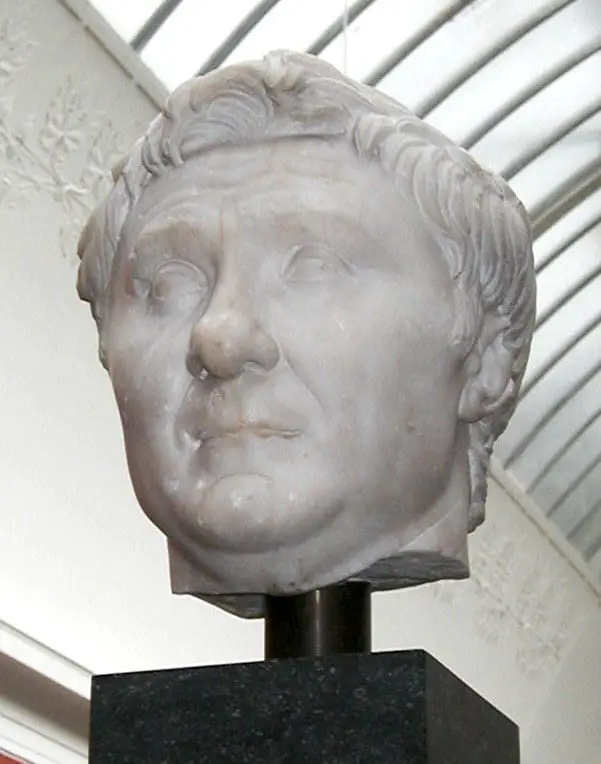
Source: Wikimedia Common
Pompey the Great was one of the most iconic players in the late Roman Republic. We know that he was a part of the First Triumvirate and dominated over Rome then. What is lesser known is how he earned the title of ‘Pompey the Great’ from his deeds and the context of his time.
He rose to power after defeating Marius of Africa while serving Sulla in the Roman civil war. It was here that he earned the title of ‘Pompey the Great’ (Magnus). It catapulted his confidence; he coerced a legion into fighting against Sertorius. It was another triumphant victory of Pompey who returned to Rome. Along with Crassus, he won over the slave revolt in Spartacus. It further gained him more popularity as well as infamous rivalry within the Triumvirate.
As the commander for about 60 ships, he used them to dissolve any pirate activity within the parameters of his command. In about three months, he completely eradicated pirate activities from the Western Meditteranean. Without limits, he ventured into securing the lands of Cilicia, where he curtailed pirate fortresses and dens.
Towards the East, Pompey annexed Syria as a province in Rome and helped establish peace between Armenia and Parthia. Thus, changing the map of Rome, precisely adding more area and amassing double the previous income, Pompey is regarded as one of the most successful generals of Rome.
3. Lucius Cornelius Sulla (138-78 BC)
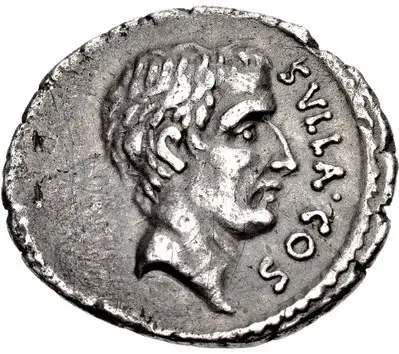
Source: Wikimedia Common
Historically speaking, Lucius Cornelius Sulla Felix was a prominent figure, better known as Sulla. He was the first Roman general to win the magnanimous Roman civil war and protected the Roman Empire from total collapse.
His first recognition descended on Roman lands when he had the Numidian King, Jugurtha surrender and arrested. After his role in the War of Allies, he was the consul of Rome in 88 BCE. When such a deserving commander was replaced by Marius, in pitting against Mithridates of Pontus, he rebelled against Rome itself by employing 30,000 soldiers. Soon, he defeated his arch-enemy Mithridates himself.
He became the enemy of the state for his actions against Rome. But when he triumphantly returned, he was made the dictator of Rome instead, vesting in his supreme powers. It was an unprecedented act in Rome, which suffices his name in this list.
Sulla was victorious on all frontiers, especially in the Battle at the Colline Gate(82 BCE), and ceased the internal civil war. He proclaimed indefinite dictatorship over Rome right after and ordered as many reformations he could articulate during his reign. He completely aligned old Roman values rewarded his helpers and veteran soldiers with surplus articles and chalked out his ramifications within the state walls. Such an active and visionary leader as Sulla, unfortunately, died in 78 BC.
2. Scipio Africanus (236-183 BCE)
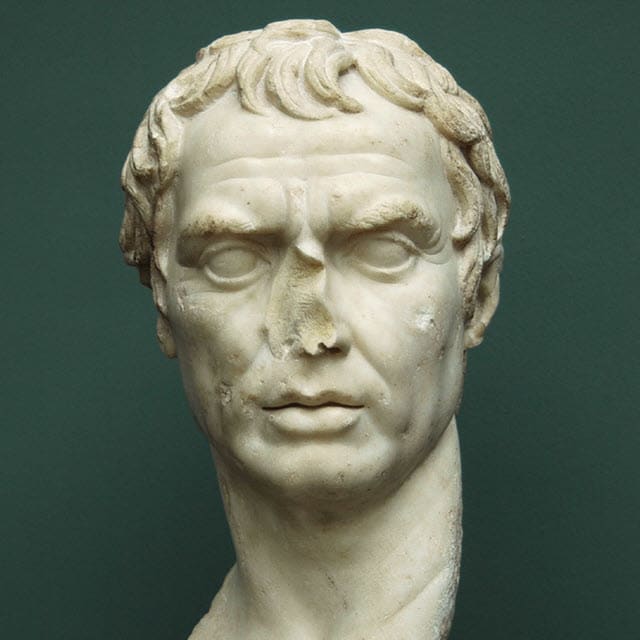
Source: Wikimedia Common
Publius Cornelius Scipio Africanus or simply Scipio Africanus got named after his mighty conquest of Northern Africa during the great Punic War (146 BC). Born to Publius Cornelius Scipio, the Roman consul at that time, the only training he ever received for the art of warfare was at the brutal battlefields itself. Following his father into the hitherto unchartered territories of Northern Italy, he witnessed their first attempt to fight against Carthage at River Ticinus.
Scipio Africanus chanced to observe the massive loss of legions and properties of Roman armies on many occasions. Once he also intervened a group of young Romans planning to flee and made them swear to refrain from forsaking their armies. He knew very well that defeat was no matter of shame but giving up was.
Scipio’s bravery is reflected in his voluntary will to annihilate himself for the sake of his state, for he knew very well that the Carthaginian genius, Hannibal, spared no one. Yet, he still mustered up the courage to lead a legion of Roman armies in Spain to cut-off the potential reinforcements to Carthage.
He possessed austere discipline and refined tactical ability and just at the age of 24, he launched his first campaign of victory by destroying the Punic base situated in Spain. He fortified their position in Spain and got honoured for his accomplishment and devotion towards the state as he returned to Rome.
Buoyed by the collective confidence of the Roman consuls and his military ingenuity, Scipio dismantled the strong bases of Carthage in North Africa, ultimately winning the Second Punic War. His strategic maneuver and shrewd military acumen proved to decimate 40,000 enemy soldiers under the command of Hannibal at Zama (202 BC). Eventually, Hannibal escaped; Scipio landed Rome the unparalleled power of the Western Mediterranean.
Scipio bagged many achievements as well as enemies envious of his popularity. His courage at the time of crisis, his master-plans and undaunted disposition earned him one of the most notable generals of the Roman armies.
1. Julius Caesar (100-44 BC)
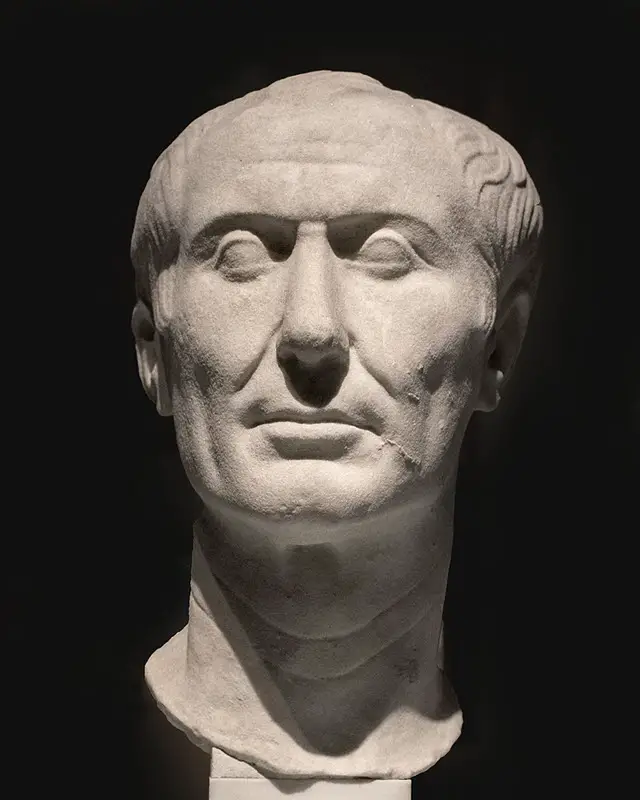
Source: Wikimedia Common
Gaius Julius Caesar was an ancient Roman politician, general and scholar who helped to topple the Roman Republic and initiated the onset of the Roman Empire as the dictator of the land.
Deeply revered by the consuls and loved by his inferiors, Caesar had the support of almost the entire Rome and served their unquestionable loyalty. He cared personally for each of his men, lavishly spending on every need of every soldier.
On the battlefield, he was careful, cautious, and always well-researched about the entry and exit routes. His major accomplishment includes the invasion of farther lands of Gaul, which involved dozens of battles and countless skirmishes. Initially, he had left for Gaul with a smaller fraction of the army without the knowledge of the consuls. Hence, he also adopted unconventional measures and bold decisions of his own.
Other milestone events of his career are the invasion and conquest of Britain twice (55 and 54 BC), where he established local client kings and tributary tribes in Kent, Thames, Essex and Hertfordshire. He also defeated multiple Germanic armies, Egyptian armies and invaded Pontic armies with utter deft and training.
Another defining victory of Caesar was defeating the Roman Senate, particularly Pompey, in a destructive civil war. This historic war consisted of about six rigorous battles in Greece, Spain and Africa.
Thus, his unmatched caliber and swiftness in maximizing any given advantage and minimizing the disadvantages earned him the most famous general of the Roman armies. He was an all-rounder conjuring brilliant strategies, an extravagant logistician who loved his people, and an unconventional thinker. The prime examples of his tactics are against Ariovistus and Pompey.
Conclusion
These brave men have unanimously proved that our greatness lies not in success for there is always a defeat sneering at us but from our ability to bounce right back with much more enthusiasm and will-power.
If we are to learn, it is: dedication towards one’s state, the welfare of the statesmen, rigorous standards of discipline and great attention to details are all the qualities of a triumphant fighter.
They flexed their military muscle with overpowering strength that has placed them on top of this list and even incorporated as characters in games, making them immortal.
